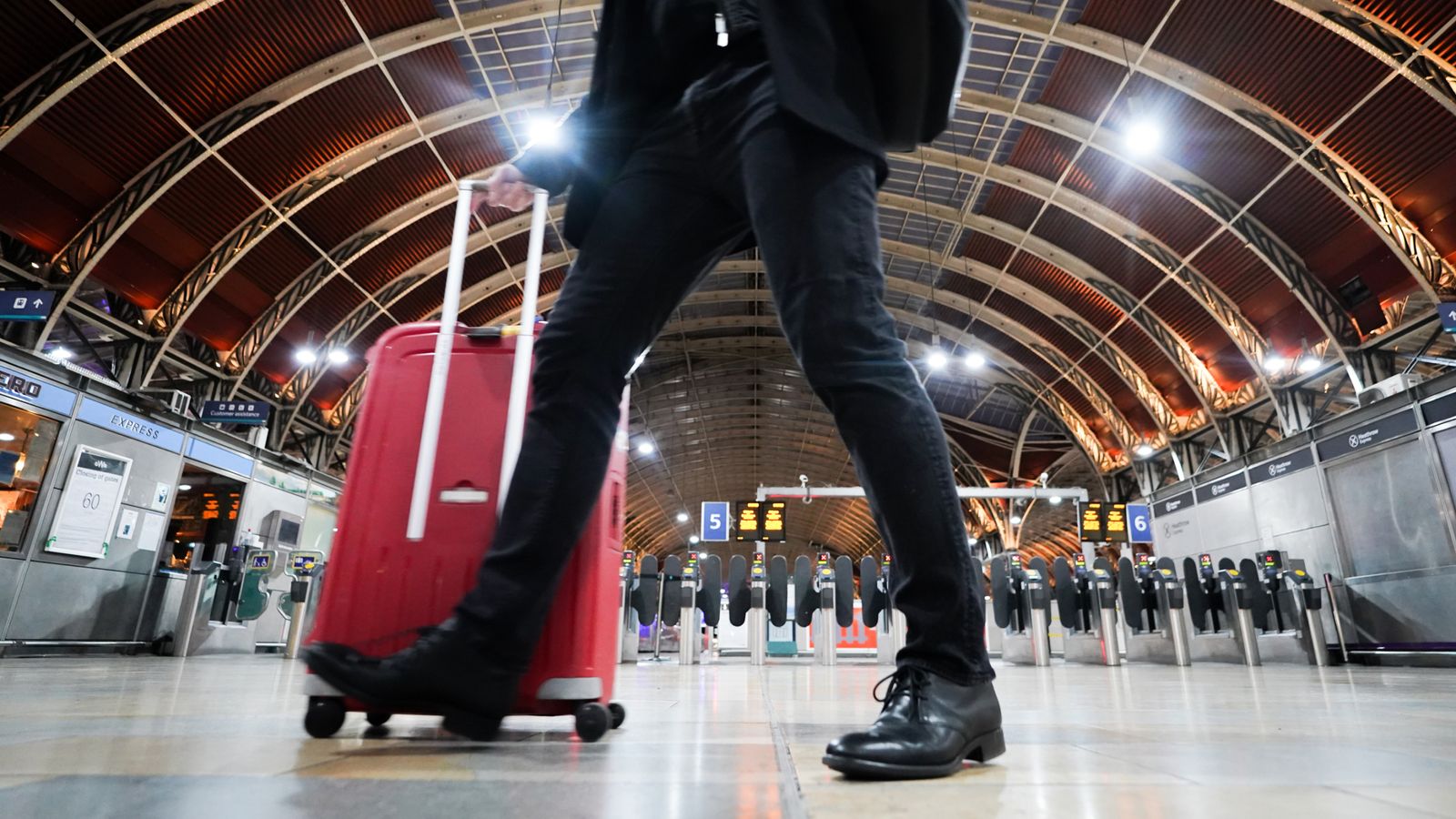Rail passengers are being hit by the biggest fare hike in more than a decade today, against a backdrop of record cancellations and strike disruption.
Regulated ticket prices are increasing by 5.9%, adding hundreds of pounds to the cost of many annual season tickets.
It is the highest fare rise since 2012, when prices rose by 6%.
But the government points out this year’s increase is “well below inflation” and has again been delayed in recognition that “people are feeling the pinch” with the cost of living crisis.
Regulated fare rises have previously been linked to the Retail Price Index measure of inflation for the previous July, which in 2022 was 12.3%.
However, the Westminster and Welsh Governments set this year’s rises in line with July’s average earnings growth, which was 5.9%.
Annual increases have also usually been introduced on the first working day of the year, but they have been postponed until March since 2021.
Annual season ticket cost based on 5.9% rise:
UK rail minister Huw Merriman said: “I understand it has been a difficult year and people are feeling the pinch which is why – through the biggest ever government intervention – we capped the rise well below inflation and delayed it coming into force.”
The Scottish Government has frozen ScotRail fares until the end of March.
Read more:
Rail minister’s work laptop stolen from pub after strikes
Rail strikes: Which lines will be affected and when
Regulated fares include season tickets on most commuter journeys, some off-peak return tickets on long-distance journeys, and anytime tickets around major cities.
Other fares, including first class and advance tickets, are not regulated by the price cap.
Unregulated fares are set by operators, on a commercial basis, to optimise demand and revenue.
‘Train reliability is not good enough’
The rises in England and Wales came as separate figures from the rail watchdog revealed worsening train reliability.
Data published by the Office of Rail and Road (ORR) showed in the three months to December, some 4.5% of all planned trains were cancelled, the highest since records began in 2014.
Over the same period, a third of services did not arrive on time.
The regulator pointed out performance was impacted over the quarter by strike action as well as bad weather.
Feras Alshaker of the ORR said: “Our official statistics confirm that train reliability is not good enough.
“Even on non-strike days the number of trains being cancelled is too high and we know for some operators these figures will have been higher, due to pre-cancellations.
“There is no quick fix, but ORR is working closely with the industry to address these issues with train performance so that passengers can travel with confidence.”






















